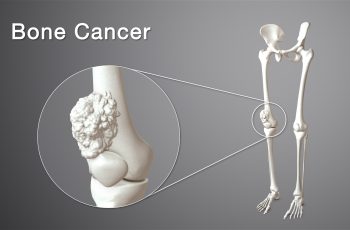Blood Cancer Leukemia Lymphoma Myeloma
Some forms of CLL begin slowly and symptoms may not be obvious for years, while other forms of CLL grow quickly. Experts believe that blood cancer may develop from inherited genetic mutations, smoking, and environmental factors like exposure to chemicals and radiation. Talking to a therapist or finding a support group may help you navigate the challenges.
Leukemia can be either acute (fast-growing) or chronic (slower-growing), and affect the lymphocytes or other immune cells . It’s the most common blood cancer for children under the age of 15. This Is a blood cancer that affects the lymphatic system of our body. The system is responsible for removing the excess fluids from the body and producing immune cells. A lymphocyte is a kind of white blood cell that helps in fighting infection.
Dr. Sporn conducted research on Fenrentinide, and proved its efficacy in treating several cancers. However, Fenrentinide is poorly soluble in water, requiring it to be delivered at dangerous dosing levels to be effective. Every 9 minutes, someone in the U.S. dies from a blood cancer. Duke University Hospital is proud of our team and the exceptional care they provide. They are why our cancer program is nationally ranked, and the highest ranked program in North Carolina, according to U.S. Leukemias are the most common cancers in children and account for 28% of all childhood cancers.
- Leukemia prevents white blood cells from fighting infections in your body.
- Lymphoma is most often diagnosed in people ages 15 to 35 and over age 50.
- The swelling of lymph nodes, liver and spleen are also common, and anemia can occur in some blood cancers.
- ALL accounts for the largest diagnosis of leukemia in children under 15 years old, but it is rare in adults.
- Over time, the cancerous cells impair the immune system.
- A blood cancer prognosis varies based on the type and other factors, including your overall health, age and response to treatment.
Talk to your doctor right away if you are experiencing any of these symptoms. Men over age 50 are most likely to get it, and African-Americans have higher odds of it than other people. Connect with others like you for support and answers to your questions in the Blood Cancers & Disorders support group on Mayo Clinic Connect, a patient community.

Drug shows promise in slowing progression of smoldering myeloma to cancer.
– it is a form of cancer that is caused in the plasma cells. Plasma cells are actually white blood cells that produce antibodies which are responsible for fighting infection and diseases in the body. The normal production of these antibodies is hampered by Myeloma cells. This weakens the immune system, and hence, the body becomes susceptible to infection.
Leukemia
Still, scans may help whether cancer has affected other parts of the body. Hodgkin lymphomais a blood cancer that develops in the lymphatic system from cells called lymphocytes. Hodgkin lymphoma is characterized by the presence of an abnormal lymphocyte called the Reed-Sternberg cell. It is named according to the type of white blood cell that is affected and whether it is fast growing or slow growing . Novel techniques, such as less intensive chemotherapy prior to a stem cell transplant, were pioneered in part at Duke. We work with you to create a personalized treatment plan that includes diagnostic visits, routine check-ups, and sick visits when you’re not feeling well.
In blood cancer, DNA tells blood cells when to grow, when to divide or multiply and/or when to die. These include the type of blood cancer you have, your age, how fast the cancer is progressing, and whether the cancer has spread to other parts of your body. Different types of tests and procedures may be used to diagnose blood cancer. What you need will depend on the type of blood cancer suspected.
The abnormal cells
The abnormal cells are cancerous and lead to excessive reproduction of white blood cells. Lymphomais a type of blood cancer that affects the lymphatic system, which removes excess fluids from your body and produces immune cells. Lymphocytes are a type of white blood cell that fight infection. Abnormal lymphocytes become lymphoma cells, which multiply and collect in your lymph nodes and other tissues.
Those aged between 15 to 35 or over 55 are at increased risk for Hodgkin lymphoma, while those aged over 60 are at risk for non-Hodgkin lymphoma. Verywell Health articles are reviewed by board-certified physicians and healthcare professionals. These medical reviewers confirm the content is thorough and accurate, reflecting the latest evidence-based research.
Polycythemia vera occurs when a mutation in a gene causes a problem with blood cell production. Normally, your body regulates the number of each of the three types of blood cells you have — red blood cells, white blood cells and platelets. But in polycythemia vera, your bone marrow makes too many of some of these blood cells.
Multiple Myeloma
Over time, these cancerous cells impair your immune system. Blood cancer affects how your body produces blood cells and how well those cells work. Most blood cancers start in your bone marrow, the soft, sponge-like material in the center of your bones.
Your care team may recommend testing and evaluate all the results along with you to make a diagnosis. Determining a diagnosis often starts with a physical examination to check your general health. Your doctor will review your health history, examine your body and lymph nodes, and look for any signs of infection or bruising. Vedantu has apt information on blood cancer that all students can go through.
Malignant Blood Diseases
Complications with DNA or improper function cause the blood cells to go abnormal and stop further development. They don’t die, multiply or divide when they should, and this causes the formation of blood cancer. After a certain stage, these abnormal blood cells keep multiplying and outnumber the healthy ones which are properly functioning.





